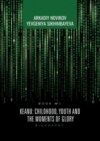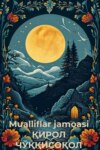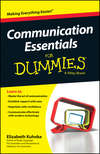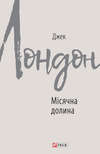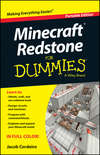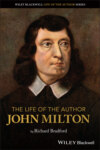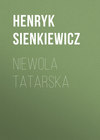Kitabı oku: «Pan Michael», sayfa 32
The storm began to pass. On the heavens, legions of clouds were still moving, but in intervals between them, stars were beginning to shine, and to be reflected in lakes of water, formed on the steppe by the dense rain. In the distance, in the direction of the Commonwealth, thunder was still roaring from time to time.
CHAPTER L
The fugitive Tartars carried news to the Belgrod horde of the disaster. Couriers from them took the news to the Ordu i Humayun, – that is, to the Sultan's camp, – where it made an uncommon impression.
Pan Adam had no need, it is true, to flee too hurriedly with his booty to the Commonwealth, for not only did no one pursue him at the first moment, but not even for the two succeeding days. The Sultan was so astonished that he knew not what to think. He sent Belgrod and Dobrudja chambuls at once to discover what troops were in the vicinity. They went unwillingly, for with them it was a question of their own skins. Meanwhile the tidings, given from mouth to mouth, grew to be the account of a considerable overthrow. Men inhabiting the depth of Asia or Africa, who had not gone hitherto with war to Lehistan, and who heard from narratives of the terrible cavalry of the unbelievers, were seized with fright at the thought that they were already in presence of that enemy who did not wait for them within his own boundaries, but sought them in the very dominions of the Padishah; the grand vizir himself, and the "future sun of war," the kaimakan, Kara Mustafa, did not know either what to think of the attack. How that Commonwealth, of whose weakness they had the minutest accounts, could assume all at once the offensive, no Turkish head could explain. It is enough that henceforth the march seemed less secure, and less like a triumph. At the council of war the Sultan received the vizir and the kaimakan with a terrible countenance.
"You have deceived me," said he. "The Poles cannot be so weak, since they seek us even here. You told me that Sobieski would not defend Kamenyets, and now he is surely in front of us, with his whole army."
The vizir and kaimakan tried to explain to their lord that this might be some detached band of robbers; but in view of the muskets and of straps, in which there were dragoon jackets, they did not believe that themselves. The recent expedition of Sobieski to the Ukraine, daring beyond every measure, but for all that victorious, permitted the supposition that the terrible leader intended to anticipate the enemy this time as well as the other.
"He has no troops," said the grand vizir to the kaimakan, while coming out from the council; "but there is a lion in him which knows nothing of fear. If he has collected even a few thousand, and is here, we shall march in blood to Hotin."
"I should like to measure strength with him," said young Kara Mustafa.
"May God avert from you misfortune!" answered the grand vizir.
By degrees, however, the Belgrod and Dobrudja chambuls convinced themselves that there were not only no large bodies of troops, but no troops at all in the neighborhood. They discovered the trail of a detachment numbering about three hundred horse, which moved hurriedly toward the Dniester. The Tartars, remembering the fate of Azya's men, made no pursuit, out of fear of an ambush. The attack remained as something astonishing and unexplained; but quiet came back by degrees to the Ordu i Humayun, and the armies of the Padishah began again to advance like an inundation.
Meanwhile, Pan Adam was returning safely with his living booty to Rashkoff. He went hurriedly, but as experienced scouts learned on the second day that there was no pursuit, he advanced, notwithstanding his haste, at a gait not to weary the horses over-much. Azya, fastened with cords to the back of the horse, was always between Pan Adam and Lusnia. He had two ribs broken, and had become wonderfully weak, for even the wound given him by Basia in the face opened from his struggle with Pan Adam and from riding with head hanging down. The terrible sergeant was careful that he should not die before reaching Rashkoff, and thus baffle revenge. The young Tartar wanted to die. Knowing what awaited him, he determined first of all to kill himself with hunger, and would not take food; but Lusnia opened his set teeth with a knife, and forced into his mouth gorailka and Moldavian wine, in which biscuits, rubbed to dust, had been mixed. At the places of halting, they threw water on his face, lest the wounds of his eye and his nose, on which flies and gnats had settled thickly during the journey, should mortify, and bring premature death to the ill-fated man.
Pan Adam did not speak to him on the road. Once only, at the beginning of the journey, when Azya, at the price of his freedom and life, offered to return Zosia and Eva, did the lieutenant say to him, —
"Thou liest, dog! Both were sold by thee to a merchant of Stambul, who will sell them again in the bazaar."
And straightway they brought Eliashevich, who said in presence of all, —
"It is so, Effendi. You sold her without knowing to whom; and Adurovich sold the bagadyr's30 sister, though she was with child by him."
After these words, it seemed for a while to Azya that Novoveski would crush him at once in his terrible grasp. Afterwards, when he had lost all hope, he resolved to bring the young giant to kill him in a transport of rage, and in that way spare himself future torment; since Novoveski, unwilling to let his captive out of sight, rode always near him, Azya began to boast beyond measure and shamelessly of all that he had done. He told how he had killed old Novoveski, how he had kept Zosia Boski in the tent, how he gloated over her innocence, how he had torn her body with rods, and kicked her. The sweat rolled off the pale face of Pan Adam in thick drops. He listened; he had not the power, he had not the wish to go away. He listened eagerly, his hands quivered, his body shook convulsively; still he mastered himself, and did not kill.
But Azya, while tormenting his enemy, tormented himself, for his narratives brought to his mind his present misfortune. Not long before, he was commanding men, living in luxury, a murza, a favorite of the young kaimakan; now, lashed to the back of a horse, and eaten alive by flies, he was travelling on to a terrible death. Relief came to him when, from the pain of his wounds, and from suffering, he fainted. This happened with growing frequency, so that Lusnia began to fear that he might not bring him alive. But they travelled night and day, giving only as much rest to the horses as was absolutely needful, and Rashkoff was ever nearer and nearer. Still the horned soul of the Tartar would not leave the afflicted body. But during the last days he was in a continual fever, and at times he fell into an oppressive sleep. More than once in that fever or sleep he dreamed that he was still in Hreptyoff, that he had to go with Volodyovski to a great war; again that he was conducting Basia to Rashkoff; again that he had borne her away, and hidden her in his tent; at times in the fever he saw battles and slaughter, in which, as hetman of the Polish Tartars, he was giving orders from under his bunchuk. But awakening came, and with it consciousness. Opening his eyes, he saw the face of Novoveski, the face of Lusnia, the helmets of the dragoons, who had thrown aside the sheepskin caps of the horseherds; and all that reality was so dreadful that it seemed to him a genuine nightmare. Every movement of the horse tortured him; his wounds burned him increasingly; and again he fainted. Pierced with pain, he recovered consciousness, to fall into a fever, and with it into a dream, to wake up again.
There were moments in which it seemed to him impossible that he, such a wretched man, could be Azya, the son of Tugai Bey; that his life, which was full of uncommon events, and which seemed to promise a great destiny, was to end with such suddenness, and so terribly.
At times too it came to his head that after torments and death he would go straightway to paradise; but because once he had professed Christianity, and had lived long among Christians, fear seized him at the thought of Christ. Christ would have no pity on him; if the Prophet had been mightier than Christ, he would not have given him into the hands of Pan Adam. Perhaps, however, the Prophet would show pity yet, and take the soul out of him before Pan Adam would kill him with torture.
Meanwhile, Rashkoff was at hand. They entered a country of cliffs, which indicated the vicinity of the Dniester. Azya in the evening fell into a condition half feverish, half conscious, in which illusions were mingled with reality. It seemed to him that they had arrived, that they had stopped, that he heard around him the words "Rashkoff! Rashkoff!" Next it seemed to him that he heard the noise of axes cutting wood.
Then he felt that men were dashing cold water on his head, and then for a long time they were pouring gorailka into his mouth. After that he recovered entirely. Above him was a starry night, and around him many torches were gleaming. To his ears came the words, —
"Is he conscious?"
"Conscious. He seems in his mind."
And that moment he saw above him the face of Lusnia.
"Well, brother," said the sergeant, in a calm voice, "the hour is on thee!"
Azya was lying on his back and breathing freely, for his arms were stretched upward at both sides of his head, by reason of which his expanded breast moved more freely and received more air than when he was lying lashed to the back of the horse. But he could not move his hands, for they were tied above his head to an oak staff which was placed at right angles to his shoulders, and were bound with straw steeped in tar. Azya divined in a moment why this was done; but at that moment he saw other preparations also, which announced that his torture would be long and ghastly. He was undressed from his waist to his feet; and raising his head somewhat, he saw between his naked knees a freshly trimmed, pointed stake, the larger end of which was placed against the butt of a tree. From each of his feet there went a rope ending with a whiffletree, to which a horse was attached. By the light of the torches Azya could see only the rumps of the horses and two men, standing somewhat farther on, who evidently were holding the horses by the head.
The hapless man took in these preparations at a glance; then, looking at the heavens, it is unknown why, he saw stars and the gleaming crescent of the moon.
"They will draw me on," thought he.
And at once he closed his teeth so firmly that a spasm seized his jaws. Sweat came out on his forehead, and at the same time his face became cold, for the blood rushed away from it. Then it seemed to him that the earth was fleeing from under his shoulders, that his body was flying and flying into some fathomless abyss. For a while he lost consciousness of time, of place, and of what they were doing to him. The sergeant opened Azya's mouth with a knife, and poured in more gorailka.
He coughed and spat out the burning liquor, but was forced to swallow some of it. Then he fell into a wonderful condition: he was not drunk; on the contrary, his mind had never been clearer, nor his thought quicker. He saw what they were doing, he understood everything; but an uncommon excitement seized him, as it were, – impatience that all was lasting so long, and that nothing was beginning yet.
Next heavy steps were heard near by, and before him stood Pan Adam. At sight of him all the veins in the Tartar quivered. Lusnia he did not fear; he despised him too much. But Pan Adam he did not despise; indeed, he had no reason to despise him; on the contrary, every look of his face filled Azya's soul with a certain superstitious dread and repulsion. He thought to himself at that moment, "I am in his power; I fear him!" and that was such a terrible feeling that under its influence the hair stiffened on the head of Tugai Bey's son.
"For what thou hast done, thou wilt perish in torment," said Pan Adam.
The Tartar gave no answer, but began to pant audibly.
Novoveski withdrew, and then followed a silence which was broken by Lusnia.
"Thou didst raise thy hand on the lady," said he, with a hoarse voice; "but now the lady is at home with her husband, and thou art in our hands. Thy hour has come!"
With those words the act of torture began for Azya. That terrible man learned at the hour of his death that his treason and cruelty had profited nothing. If even Basia had died on the road, he would have had the consolation that though not in his, she would not be in any man's, possession; and that solace was taken from him just then, when the point of the stake was at an ell's length from his body. All had been in vain. So many treasons, so much blood, so much impending punishment for nothing, – for nothing whatever!
Lusnia did not know how grievous those words had made death to Azya; had he known, he would have repeated them during the whole journey.
But there was no time for regrets then; everything must give way before the execution. Lusnia stooped down, and taking Azya's hips in both his hands to give them direction, called to the men holding the horses, —
"Move! but slowly and together!"
The horses moved; the straightened ropes pulled Azya's legs. In a twinkle his body was drawn along the earth and met the point of the stake. Then the point commenced to sink in him, and something dreadful began, – something repugnant to nature and the feelings of man. The bones of the unfortunate moved apart from one another; his body gave way in two directions; pain indescribable, so awful that it almost bounds on some monstrous delight, penetrated his being. The stake sank more and more deeply. Azya fixed his jaws, but he could not endure; his teeth were bared in a ghastly grin, and out of his throat came the cry, "A! a! a!" like the croaking of a raven.
"Slowly!" commanded the sergeant.
Azya repeated his terrible cry more and more quickly.
"Art croaking?" inquired the sergeant.
Then he called to the men, —
"Stop! together! There, it is done," said he, turning to Azya, who had grown silent at once, and in whose throat only a deep rattling was heard.
The horses were taken out quickly; then men raised the stake, planted the large end of it in a hole prepared purposely, and packed earth around it. The son of Tugai Bey looked from above on that work. He was conscious. That hideous species of punishment is in this the more dreadful, that victims drawn on to the stake live sometimes three days. Azya's head was hanging on his breast; his lips were moving, smacking, as if he were chewing something and tasting it. He felt then a great faintness, and saw before him, as it were, a boundless, whitish mist, which, it is unknown wherefore, seemed to him terrible; but in that mist he recognized the faces of the sergeant and the dragoons, he saw that he was on the stake, that the weight of his body was sinking him deeper and deeper. Then he began to grow numb from the feet, and began to be less and less sensitive to pain.
At times darkness hid from him that whitish mist; then he blinked with his one seeing eye, wishing to see and behold everything till death. His gaze passed with particular persistence from torch to torch, for it seemed to him that around each flame there was a rainbow circle.
But his torture was not ended; after a while the sergeant approached the stake with an auger in his hand, and cried to those standing near, —
"Lift me up."
Two strong men raised him aloft. Azya began to look at him closely, blinking, as if he wished to know what kind of man was climbing up to his height. Then the sergeant said, —
"The lady knocked out one eye, and I promised myself to bore out the other."
When he had said this, he put the point into the pupil, twisted once and a second time, and when the lid and delicate skin surrounding the eye were wound around the spiral of the auger, he jerked.
Then from the two eye-sockets of Azya two streams of blood flowed, and they flowed like two streams of tears down his face. His face itself grew pale and still paler. The dragoons extinguished the torches in silence, as if in shame that light had shone on a deed of such ghastliness; and from the crescent of the moon alone fell silvery though not very bright rays on the body of Azya. His head fell entirely on his breast; but his hands, bound to the oak staff, and enveloped in straw steeped in tar, were pointing toward the sky, as if that son of the Orient were calling the vengeance of the Turkish crescent on his executioners.
"To horse!" was heard from Pan Adam.
Before mounting the sergeant ignited, with the last torch, those uplifted hands of the Tartar; and the detachment moved toward Yampol. Amid the ruins of Rashkoff, in the night and the desert, Azya, the son of Tugai Bey, remained on the lofty stake, and he gleamed there a long time.
CHAPTER LI
Three weeks later, at midday, Pan Adam was in Hreptyoff. He had made the journey from Rashkoff so slowly because he had crossed to the other side of the Dnieper many times, while attacking chambuls and the perkulab's people along the river, at various stanitsas. These informed the Sultan's troops afterward that they had seen Polish detachments everywhere, and had heard of great armies, which surely would not wait for the coming of the Turks at Kamenyets, but would intercept their march, and meet them in a general battle.
The Sultan, who had been assured of the helplessness of the Commonwealth, was greatly astonished; and sending Tartars, Wallachians, and the hordes of the Danube in advance, he pushed forward slowly, for in spite of his measureless strength, he had great fear of a battle with the armies of the Commonwealth.
Pan Adam did not find Volodyovski in Hreptyoff, for the little knight had followed Motovidlo to assist the starosta of Podlyasye against the Crimean horde and Doroshenko. There he gained great victories, adding new glory to his former renown. He defeated the stern Korpan, and left his body as food to beasts on the open plain; he crushed the terrible Drozd, and the manful Malyshka, and the two brothers Siny, celebrated Cossack raiders, also a number of inferior bands and chambuls.
But when Pan Adam arrived, Pani Volodyovski was just preparing to go with the rest of the people and the tabor to Kamenyets, for it was necessary to leave Hreptyoff, in view of the invasion. Basia was grieved to leave that wooden fortalice, in which she had experienced many evils, it is true, but in which the happiest part of her life had been passed, with her husband, among loving hearts, famous soldiers. She was going now, at her own request, to Kamenyets, to unknown fortunes and dangers involved in the siege. But since she had a brave heart, she did not yield to sorrow, but watched the preparations carefully, guarding the soldiers and the tabor. In this she was aided by Zagloba, who in every necessity surpassed all in understanding, together with Pan Mushalski, the incomparable bowman, who was besides a soldier of valiant hand and uncommon experience.
All were delighted at the arrival of Pan Adam, though they knew at once, from the face of the knight, that he had not freed Eva or the sweet Zosia from Pagan captivity. Basia bewailed the fate of the two ladies with bitter tears, for they were to be looked on as lost. Sold, it was unknown to whom, they might be taken from the markets of Stambul to Asia Minor, to islands under Turkish rule, or to Egypt, and be confined there in harems; hence it was not only impossible to ransom them, but even to learn where they were.
Basia wept; the wise Pan Zagloba wept; so did Pan Mushalski, the incomparable bowman. Pan Adam alone had dry eyes, for tears had failed him already. But when he told how he had gone down to Tykich near the Danube, had cut to pieces the Lithuanian Tartars almost at the side of the horde and the Sultan, and had seized Azya, the evil enemy, the two old men rattled their sabres, and said, —
"Give him hither! Here, in Hreptyoff, should he die."
"Not in Hreptyoff," said Pan Adam. "Rashkoff is the place of his punishment, that is the place where he should die; and the sergeant here found a torment for him which was not easy."
He described then the death which Azya had died, and they listened with terror, but without pity.
"That the Lord God pursues crime is known," said Zagloba at last; "but it is a wonder that the Devil protects his servants so poorly."
Basia sighed piously, raised her eyes, and after a short meditation answered, —
"He does, for he lacks strength to stand against the might of God."
"Oh, you have said it," remarked Pan Mushalski, "for if, which God forfend, the Devil were mightier than the Lord, all justice, and with it the Commonwealth, would vanish."
"I am not afraid of the Turks, – first, because they are such sons, and secondly, they are children of Belial," answered Zagloba.
All were silent for a while. Pan Adam sat on the bench with his palms on his knees, looking at the floor with glassy eyes.
"It must have been some consolation," said Pan Mushalski, turning to him; "it is a great solace to accomplish a proper vengeance."
"Tell us, has it consoled you really? Do you feel better now?" asked Basia, with a voice full of pity.
The giant was silent for a time, as if struggling with his own thoughts; at last he said, as if in great wonderment, and so quietly that he was almost whispering, —
"Imagine to yourself, as God is dear to me, I thought that I should feel better if I were to destroy him. I saw him on the stake, I saw him when his eye was bored out, I said to myself that I felt better; but it is not true, not true."
Here Pan Adam embraced his hapless head with his hands, and said through his set teeth, —
"It was better for him on the stake, better with the auger in his eye, better with fire on his hands, than for me with that which is sitting within me, which is thinking and remembering within me. Death is my one consolation; death, death, that is the truth."
Hearing this, Basia's valiant and soldier heart rose quickly, and putting her hands on the head of the unfortunate man, she said, —
"God grant it to you at Kamenyets; for you say truly, it is the one consolation."
He closed his eyes then, and began to repeat, —
"Oh, that is true, that is true; God repay you!"
That same afternoon they all started for Kamenyets.
Basia, after she had passed the gate, looked around long and long at that fortalice, gleaming in the light of the evening; at last, signing herself with the holy cross, she said, —
"God grant that it come to us to return to thee, dear Hreptyoff, with Michael! God grant that nothing worse be waiting for us!"
And two tears rolled down her rosy face. A peculiar strange grief pressed all hearts; and they moved forward in silence. Meanwhile darkness came.
They went slowly toward Kamenyets, for the tabor advanced slowly. In it went wagons, herds of horses, bullocks, buffaloes, camels; army servants watched over the herds. Some of the servants and soldiers had married in Hreptyoff, hence there was not a lack of women in the tabor. There were as many troops as under Pan Adam, and besides, two hundred Hungarian infantry, which body the little knight had equipped at his own cost, and had trained. Basia was their patron; and Kalushevski, a good officer, led them. There were no real Hungarians in that infantry, which was called Hungarian only because it had a Hungarian uniform. The non-commissioned officers were "veterans," soldiers of the dragoons; but the ranks were composed of robber bands which had been sentenced to the rope. Life was granted the men on condition that they would serve in the infantry, and with loyalty and bravery efface their past sins. There were not wanting among them also volunteers who had left their ravines, meadows, and similar robber haunts, preferring to join the service of the "Little Falcon" of Hreptyoff rather than feel his sword hanging over their heads. These men were not over-tractable, and not sufficiently trained yet; but they were brave, accustomed to hardships, dangers, and bloodshed. Basia had an uncommon love for this infantry, as for Michael's child; and in the wild hearts of those warriors was soon born an attachment for the wonderful and kind lady. Now they marched around, her carriage with muskets on their shoulders and sabres at their sides, proud to guard the lady, ready to defend her madly in case any chambul should bar their way.
But the road was still free, for Pan Michael had more foresight than others, and, besides, he had too much love for his wife to expose her to danger through delay. The journey was made, therefore, quietly. Leaving Hreptyoff in the afternoon, they journeyed till evening, then all night; the next day in the afternoon they saw the high cliffs of Kamenyets.
At sight of them, and at sight of the bastions of the fort adorning the summits of the cliffs, great consolation entered their hearts at once; for it seemed to them impossible that any hand but God's own could break that eagle's nest on the summit of projecting cliffs surrounded by the loop of the river. It was a summer day and wonderful. The towers of the churches looking out from behind the cliffs were gleaming like gigantic lights; peace, calm, and gladness were on that serene region.
"Basia," said Zagloba, "more than once the Pagans have gnawed those walls, and they have always broken their teeth on them. Ha! how many times have I myself seen how they fled, holding themselves by the snout, for they were in pain. God grant it to be the same this time!"
"Surely it will," said the radiant Basia.
"One of their sultans, Osman, was here. It was – I remember the case as if to-day – in the year 1621. He came, the pig's blood, just over there from that side of the Smotrych, from Hotin, stared, opened his mouth, looked and looked; at last he asked, 'But who fortified that place so?' 'The Lord God,' answered the vizir. 'Then let the Lord God take it, for I am not a fool!' And he turned back on the spot."
"Indeed, they turned back quickly!" put in Pan Mushalski.
"They turned back quickly," said Zagloba; "for we touched them up in the flanks with spears, and afterward the knighthood bore me on their hands to Pan Lubomirski."
"Then were you at Hotin?" asked the incomparable bowman. "Belief fails me, when I think where have you not been, and what have you not done."
Zagloba was offended somewhat and said: "Not only was I there, but I received a wound, which I can show to your eyes, if you are so curious; I can show it directly, but at one side, for it does not become me to boast of it in the presence of Pani Volodyovski."
The famous bowman knew at once that Zagloba was making sport of him; and as he did not feel himself competent to overcome the old noble by wit, he inquired no further, and turned the conversation.
"What you say is true," said he: "when a man is far away, and hears people saying, 'Kamenyets is not supplied, Kamenyets will fall,' terror seizes him; but when he sees Kamenyets, consolation comes to him."
"And besides, Michael will be in Kamenyets," cried Basia.
"And maybe Pan Sobieski will send succor."
"Praise be to God! it is not so ill with us, not so ill. It has been worse, and we did not yield."
"Though it were worse, the point is in this, not to lose courage. They have not devoured us, and they will not while our courage holds out," said Zagloba.
Under the influence of these cheering thoughts they grew silent. But Pan Adam rode up suddenly to Basia; his countenance, usually threatening and gloomy, was now smiling and calm. He had fixed his gazing eyes with devotion on Kamenyets bathed in sunbeams, and smiled without ceasing.
The two knights and Basia looked at him with wonder, for they could not understand how the sight of that fortress had taken every weight from his soul with such suddenness; but he said, —
"Praise be to the name of the Lord! there was a world of suffering, but now gladness is near me!" Here he turned to Basia. "They are both with the mayor, Tomashevich; and it is well that they have hidden there, for in such a fortress that robber can do nothing to them."
"Of whom are you speaking?" asked Basia, in terror.
"Of Zosia and Eva."
"God give you aid!" cried Zagloba; "do not give way to the Devil."
But Pan Adam continued, "And what they say of my father, that Azya killed him, is not true either."
"His mind is disturbed," whispered Pan Mushalski.
"Permit me," said Pan Adam again; "I will hurry on in advance. I am so long without seeing them that I yearn for them."
When he had said this he began to nod his gigantic head toward both sides; then he pressed his horse with his heels, and moved on. Pan Mushalski, beckoning to a number of dragoons, followed him, so as to keep an eye on the madman. Basia hid her rosy face in her hands, and soon hot tears began to flow through her fingers.
"He was as good as gold, but such misfortunes surpass human power. Besides, the soul is not revived by mere vengeance."
Kamenyets was seething with preparations for defence. On the walls, in the old castle and at the gates, especially at the Roman gates, "nations" inhabiting the town were laboring under their mayors, among whom the Pole Tomashevich took the first place, and that because of his great daring and his rare skill in handling cannon. At the same time Poles, Russians, Armenians, Jews, and Gypsies, working with spades and pickaxes, vied with one another. Officers of various regiments were overseers of the work; sergeants and soldiers assisted the citizens; even nobles went to work, forgetting that God had created their hands for the sabre alone, giving all other work to people of insignificant estate. Pan Humyetski, the banneret of Podolia, gave an example himself which roused tears, for he brought stones with his own hands in a wheelbarrow. The work was seething in the town and in the castle. Among the crowds the Dominicans, the Jesuits, the brethren of Saint Francis, and the Carmelites circled about among the crowds, blessing the efforts of people. Women brought food and drink to those laboring; beautiful Armenian women, the wives and daughters of rich merchants, and Jewesses from Karvaseri, Jvanyets, Zinkovtsi, Dunaigrod, attracted the eyes of the soldiers.


